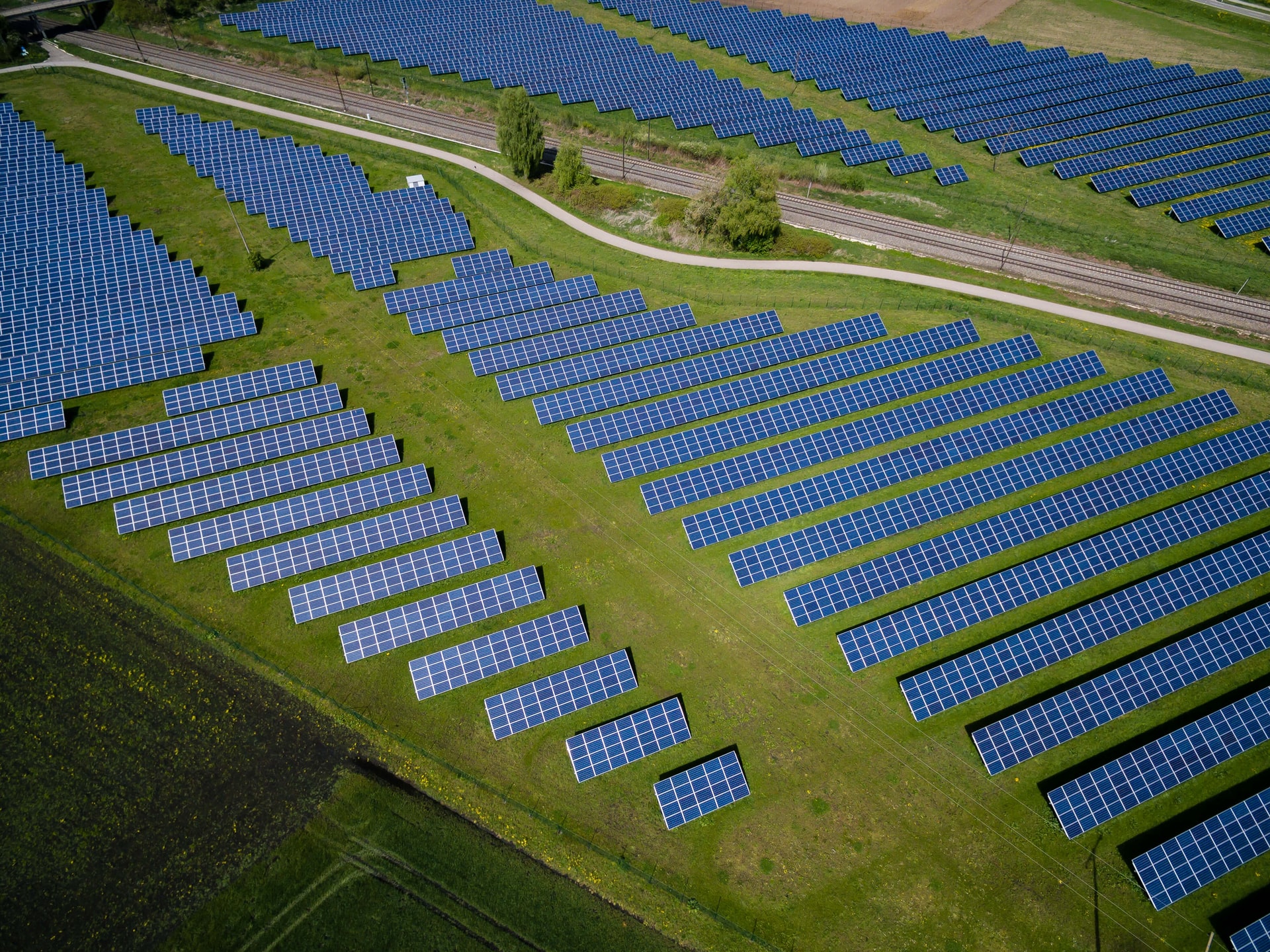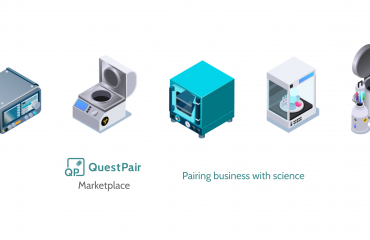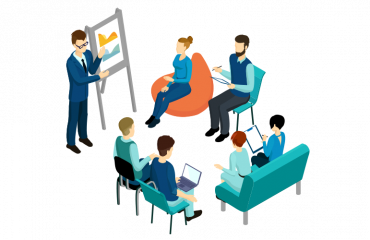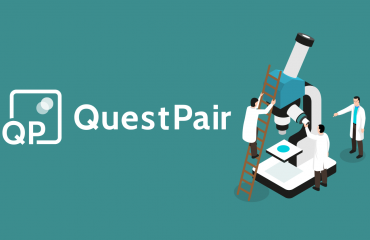Priorities and resources shaping the transition towards a circular economy in Europe and become more energy efficient
In 2020, the SARS-CoV-2 pandemic forced us to rethink many aspects of daily life. The amount of people commuting every day has dramatically dropped, with whole sectors switching to remote working, resulting in a temporary but significant reduction of air pollution levels around the world. However, many processes driving climate change are continuing at the same pace, or have even accelerated. New policy guidelines are therefore encouraging companies to make a more efficient use of their resources and adopt new business models, in order to cut energy consumption and at the same time save money that could be reinvested in people and innovation. At QuestPair we have reviewed some of the current available resources to help small and medium companies taking on these challenges.
Meeting EU Green Deal goals
For any European company with the ambition to become more sustainable it is useful to understand the Green Deal goals and use them as a guideline to shape their transition towards a greener business model.
The Green Deal, the framework used by the European Commission to translate the United Nation’s 2030 Agenda into more measurable objectives, covers different areas of the productive and social life. It is made of eight different goals:
- Increasing the EU’s climate mitigation and/or adaptation ambition
- Supplying clean, affordable and secure energy
- Transitioning of industry to a clean and/or circular economy (including waste prevention and/or recycling)
- Building and renovating in an energy and resource efficient way
- Accelerating the shift to sustainable and smart mobility
- Transition to a fair, healthy and environmentally-friendly food system
- Preserving and restoring ecosystems and biodiversity
- Realising a zero pollution ambition and a toxic-free environment
QuestPair wants to promote a sustainable society and wants to contribute positively to the implementation of the Green Deal. We have asked tech companies and scientists to which of the eight Green Deal goals their business contributes or their research can have an impact (Fig. 2). Interestingly, a large amount of respondents indicated that they can contribute to implementing one or more goals, highlighting the use of QuestPair as a means to find and employ suitable expertise and technology to do so.
Circular economy
In March 2020 the European Commission adopted a New Circular Economy Action Plan, described as “one of the main building blocks of the European Green Deal” (find the full description here). In general, the circular economy concept aims to prevent the erosion of resources, close energy and material loops, and facilitate sustainable development at different levels – for enterprises, consumers, economic agents, local and central governments (see Kirchherr et al. 2017; Kristensen and Mosgaard, 2020).
The capacity of SMEs to adopt circular economy practices plays a very important role in the implementation of EU objectives given that SMEs represent 99% of all businesses in the EU and provide two-thirds of the total private sector employment in the EU (Eurostat, 2018).
In order to implement this circularity, and make operational its emerging components, the Organization for Economic Co-operation and Development (OECD) recently given some broad definitions of possible circular economy business models:
- Circular supply models: by replacing traditional material inputs derived from virgin resources with bio-based, renewable, or recovered materials, reduce demand for virgin resource extraction in the long run.
- Resource recovery models: recycle waste into secondary raw materials, thereby diverting waste from final disposal while also displacing the extraction and processing of virgin natural resources.
- Product life extension models extend the use period of existing products, slow the flow of constituent materials through the economy, and reduce the rate of resource extraction and waste generation.
- Sharing models facilitate the sharing of under-utilised products, and can therefore reduce demand for new products and their embedded raw materials.
- Product service system models, where services rather than products are marketed, improve incentives for green product design and more efficient product use, thereby promoting a more sparing use of natural resources.
While the benefits of transitioning to a circular economy are evident both in terms of business advantage and societal impact, there are also several barriers challenging small and medium businesses, among which a lack of financial resources and a lack of technical skills.
A good starting point for many can be the free training modules developed by the European Commission and DG Environment to help SMEs to go circular (available here). The modules are designed to be accessible but at the same time also indicate where to find additional resources on all the aspects covered.
Recent studies also focused on identifying some key elements to assess the degree of circular economy implementation, so that small and medium‐sized enterprises can understand where they are and what they need to do to improve their performance (e.g. Prieto‐Sandoval et al., 2018).
Moreover, there is a clear need for new strategies and tools supporting the SMEs implementing green business models. As stated by a frequently cited study on barriers and enablers encountered by SMEs implementing circular economy models, this support and recognition “can be achieved through the creation of dedicated marketplaces and communities of practice” (Rizos et al., 2016). QuestPair aims to make expertise required to set up circular business models and technologies more available and accessible.
Energy efficiency
Reducing energy consumption is becoming a strategic priority for the European Union. In fact, “Energy efficiency measures are increasingly recognised as a means not only to achieve a sustainable energy supply, cut greenhouse gas emissions, improve security of supply and reduce import bills, but also to promote the EU’s competitiveness” (source: European Parliament, Energy efficiency fact sheet). More general information on the EU framework on Energy Efficiency and its sub-sectors can be found here.
A good starting point to lower the carbon footprint of your company and save money is an energy audit, to see how much energy they are currently using and to spot specific areas where they can make changes and improvements. A more accurate description of different kinds of audits can be found on the Energy Efficiency Network Europe platform, which aims to bring together energy supply actors, private companies and ESCOs in one international platform on energy performance contracting.
A study on 280 energy audits in 7 countries across Europe found that SMEs saved on average 5% in energy consumption with the application of high quality and cost effective energy audits, with a potential of up to 20% (Fresner et al., 2017). Even more energy (and thus expenses) can potentially be saved by thoroughly reviewing core processes used in businesses. Much of the time, true energy and cost savings are made by using new technologies and through innovation. QuestPair enables companies to find and hire consultants and researchers for consultancy, independent reviews, and contract research projects and collaborations.





